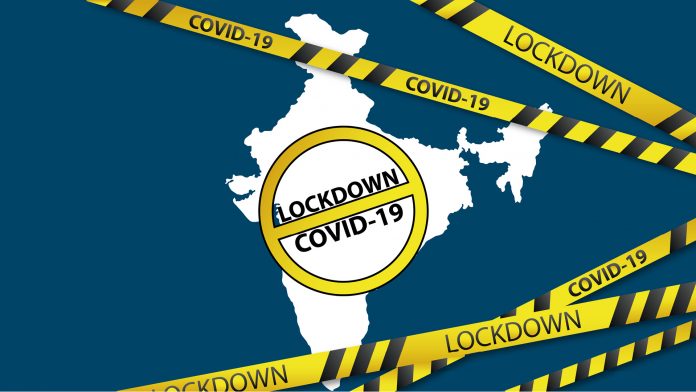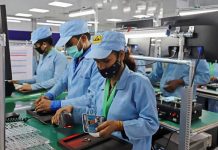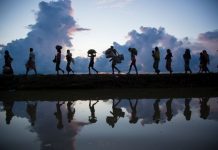This article is authored by Magaonkar Revati student of BA-LLB (Hons.) From Dayanand College of Law. In this article, the role of the civil society during lockdown has been elaborated in brief.
Table of Contents
Introduction
The lockdown came as a restriction to work and to go outdoors without an emergency which is the result of the COVID-19. It has shown us so many things which we had never seen and felt in our lifetime. It has brought the world to its knees by causing major prolonged jobs to stress to the health care workers and has made the world economy weaker. During the lockdown, many people faced the huge problem of not even having a two-time meal because of not having work that means no money, as for how long a person or a family will survive on the savings? This issue was mainly faced by the people who were serving on daily wages etc.
During this situation, the supply chain of food grains broke due to insufficient distribution. As the government has sufficient grains the people in need can survive on it but the main problem came forward for distributing it.
The government also had to limit some distribution which carried out under the National Food Security Act (NFSA) in which priority is given to the ration cardholders to get the food grains from the government. It also excludes some of the poorest people, the Adivasi community and also the urban poor who have been lost backside. There are also some other issues on which civil society needs to look at, such as healthcare and living, the civil society has the power to pressurize the government to generalise these benefits and services.
Building a network of civil society
To build a strong network of civil society we need to find the organization’s, teams which work for social welfare, etc. Those groups which are working to supply amenities in any or every village, cities, a district across the nation. There are organizations which work and provide relief to the needy without gaining profit and its volunteers are spread all over the society.
It is easy to help the needy with the volunteers who can work in their specific areas. These volunteers may be from any non-profit organisations or institutions like government school teachers, etc. Anyone can work as a volunteer, any person who wants to help and support the people in need can be a volunteer. So whenever there is a need we can connect to a person or group from any area for knowing any information.
There is more power within the scattered groups; it may be either small or large which are working in units by taking the specific responsibilities in their whole area. They work on getting the information about how much people live there and so what aid or relief they need that they are unable to manage on their own.
It can be done very easily with the help from them collectively. It will help grow the network of civil society and whenever there is any requirement or need they can connect for any assistance or help. So they can work upon any food supply chain, gaining materials. These networks can also have a national level connection that will work on gaining any material.
The Role of civil society in times of crisis
Civil society plays a vital role in minimising the death rate during the pandemic. Without the cooperation of civil society, the government solely cannot handle the crisis. Non-governmental and nonprofit organisations can go beyond public leaders and employees. They have the skills and experience to contribute indeed in the national pandemic, with their knowledge and connection with the groups across the nation.
NITI Aayog is one of those NGOs across the nation which made efforts with its volunteers to the cross-sectoral collaboration of people. It worked from feeding the hungry people to supporting that area’s or districts administration by providing the sanitation/hygiene kits, which directly contributed and complemented the health system of the public at large. NGOs like this have worked and helped beyond their specific area of work during this pandemic arising out of COVID-19. While looking towards these NGOs work it has provided immediate relief in a crucial period.
The government should give identification to those NGOs which are working at local as well as on national levels for the sake of people in need so that they can share the resources which will help the citizens in knowing critical information and also to carry out relief. NGOs are so important that they can fill the gap between having knowledge and practical experience.
Stand in Solidarity with those Delivering Essential Services
The persons who have been on the front line have done a huge work of helping, supporting, providing relief based on needs. We have given them the name as frontline warriors which included doctors, police, people in the medical field, food grains providers, etc.
During this pandemic, so many people who were often deemed as non-essential and co-adjuster have stood on the frontline. They have done work of providing health care services and other essential services to the public at large. For the betterment of the society to keep it running and to lower the obstacles in between the chain they have worked on various levels. Those people died in the line of duty while helping and providing services.
In this pandemic, the government realised the importance of the overstretched workers in the medical and health field, to whom the government had not provided adequate equipment for their protection. Also the implausible emergency workers, postal workers, watchmen, public utility workers, cleaners and all the other workers who are treated as non-essential, these people mostly keep running the most important part of society.
These all workers and the professionals who stood on the frontline deserve respect and dignity, which they have earned by their work. They not only want the applause from windows, letters of appreciation either they seek proper respect for their work.
We should not only stay home by neglecting everything and everyone outside, but we should also help and ensure the safe delivery of the services. It is not only the work and administration of the government, the civil society and its organization that have a duty towards it.
Continue social movements in innovative ways
Work with the government
Even when the social meetings and rallies are not possible during the pandemic and lockdown, we should search for other alternative ways for social movements and mobilization of the public opinion. We should find innovative ways to be connected and to be engaged with the government.
We can exchange the thoughts of civil society and organisations with the help of press notes, connecting through digital media etc. With the help of these various methods, we can share the important information which is much needed to be known by the government that’s happening on the ground.
Through this, society and organisations can share at the state and national level. Even if there are restrictions we cannot stop by the barriers, we have to be innovative with our thoughts and knowledge processing. We should recognise and value the participation by the migrant workers and the contribution done by them. By showing and giving respect to them not just as a formality but to empower them.
It is much needed for civil activists and leaders to write in newspapers about the situations of the people in need and also the positive side and work which is done by providing relief, by highlighting the unheard voice of people by using the network of civil society.
Civil society can take this opportunity to highlight the issues of migrant labourers, who are existing even before the pandemic but their condition of working and living was not noticed and they don’t have the actual support of the government.
Civil society has always been working with domestic helpers, factory workers, salesmen who sell on streets or any other workers from informal sectors. But still, we have not managed to get them all together to orgastic and build them into a powerful strength. So it is the time when we can do it.
State’s response to COVID-19: A timeline
As the first case of COVID-19 was registered in Kerala all the states became conscious about the safety measures, as result the central government issued the nationwide lockdown.
- On March 13, the Government of Maharashtra declared the outbreak of an epidemic in Mumbai, Navi Mumbai, Pune, Pimpri-Chinchwad and Nagpur and invoked the provisions of Epidemic Disease Act, 1897.
- On March 14, the Maharashtra government closed all the public facilities in the urban areas including school, colleges, public places, etc. till the 31st of March, 2020.
- On March 15, Brihanmumbai Municipal corporation (BMC) shut down Jijamata Udyan till the further orders came.
- On March 17, BMC ordered private firms in Mumbai to do its work only with fifty per cent of its staff otherwise have to face the action under Section 188 of Indian Penal Code.
- On March 17, Maharashtra Government offices were closed for 7 days and Mumbai police ordered for closure of bars, pubs, discos till 31st of March.
- On March 18, Pune’s federation of the Trade Association announced the closure of shops except for grocery stores and pharmaceuticals in the country. Which resulted in the closure of up to the number of forty thousand shops.
- On March 20, the State Government announced that the workplaces excluding essential services and public transport places should be closed in Mumbai, Mumbai Metropolitan Region, Pune, Nagpur and Pimpri Chinchwad until the 31st March.
- On March 22, the State Government announced that Section 144 of Criminal Procedure Code (CrPC) would be imposed across the state which is effectuated from 23 March, by sending the State into a lockdown. Only essential services work employees were allowed to board local trains in Mumbai and the railway services were reduced causing the cancellation of trains more than 3,700.
- On March 23, the Chief Minister Shri. Uddhav Thackeray declared the closure of borders of all the districts and strict statewide curfew.
Proactive testing, quarantine facilities and access to healthcare
Proactive testing
The coronavirus has been difficult to control not only because of its high transmissibility level but because those who are infected with it show the symptoms later and within that period it rapidly spreads over by infecting the persons near him without knowing. Proactive testing is an approach in which the test is initiated as soon as possible so that the defects and problems can be fixed and found before the actual disease gets created and also some of them even don’t exhibit the symptoms.
So proactive testing helps by testing asymptomatic people, it is probably a powerful tool for preventing the wide and rapid spread of the virus in others. It allows to calculate or judge the frequency of testing that is required to prevent the uncontrolled outbreak and to discover the frequency, accuracy or delay in getting its objective between the transmission.
India has done great work in proactive testing to ensure the safety of its citizens in a post-lockdown situation. As the cases continue to rise, the fatality rate remains three per cent in India. It was another confusing observation that India has a low test positivity rate relating to other countries, even in the smaller testing area.
Quarantine facilities
Primarily, the persons who have met the criteria or have been confirmed with the COVID-19 disease and who do not need to be hospitalized due to any medical reasons can be isolated in their home. For isolating a person at his home first it should be evaluated by any health department officials or any appropriate person. There should be primary and necessary sources for a person to live, a separate room and bathroom for the infected person with an appropriate caregiver for the patient.
When persons need isolation cannot be isolated either in-home or in healthcare service centres, a community-based isolation facility will be required during a large outbreak. The community-based quarantine places should be prepared before the need. In this, both temporary and existing structures can be used which have the basic facilities which are necessary for isolating the persons infected with the said virus. It is necessary to have basic amenities and services.
In India, many industries have come forward to help and support the government in amplifying the network of isolation facilities that could support the patients who have to be quarantined to stop the spread of coronavirus from that person.
Under the initiative to provide quarantine facilities, it has brought hospitals, commercial banks, food delivery Companies and hotel chains together. 600 rooms have been launched for isolation and quarantine of asymptomatic patients of COVID-19, in Hyderabad, Kolkata, Mumbai, Chennai, Delhi, Bengaluru.
This initiative has been started which is financed by State Bank of India, Deutsche Bank and HUL and OYO, Lemon Tree and Ginger are providing their facilities.
Conclusion
Therefore, civil society plays a very vital role in pandemic and lockdown. The civil organizations have done extensive work, which has helped so many vulnerable persons, including also such persons who were in an extensive need of a two-time meal. During this pandemic, people from different economic situations have come together to help the society in need and also to support the government. So many people have done the social welfare activities during this critical situation of the pandemic and lockdown in all the states, without having any aid on the names of specific organizations or the NGOs they have done it on their own.
References
- https://government.economictimes.indiatimes.com/news/governance/civil-society-the-third-pillar-of-strength-in-fight-against-coronavirus/75642349
- https://www.outlookindia.com/website/story/india-news-the-importance-of-the-role-of-civil-society-organisations-in-managing-the-pandemic/364223
- https://www.ncsl.org/research/health/state-action-on-coronavirus-covid-19.aspx
- https://www.financialexpress.com/defence/coronavirus-mea-plays-proactive-role-in-fight-against-covid-19/1938679/
- https://www.researchgate.net/publication/344717004_Frequency_and_accuracy_of_proactive_testing_for_COVID-19
LawSikho has created a telegram group for exchanging legal knowledge, referrals and various opportunities. You can click on this link and join:
 Serato DJ Crack 2025Serato DJ PRO Crack
Serato DJ Crack 2025Serato DJ PRO Crack











 Allow notifications
Allow notifications


